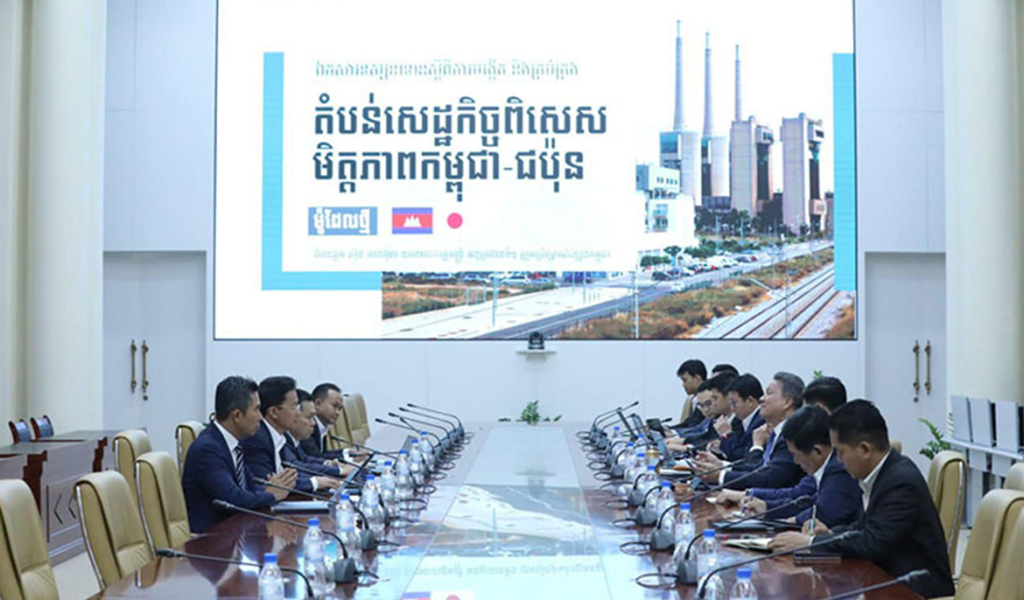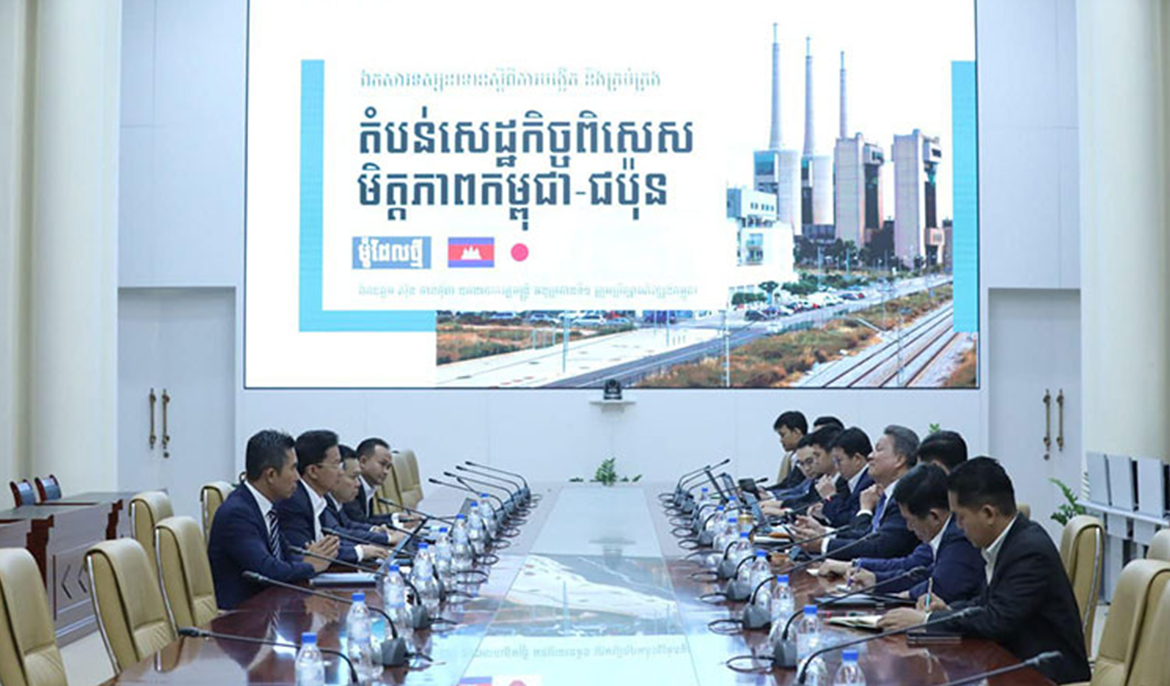The Cambodian government is preparing a policy on establishing Cambodia-Japan
special economic zones as the country is keen to attract more direct investments from Japan.
An inter-ministerial meeting in this regard was held on Monday to discuss and prepare concept documents for establishing the special economic zones in Cambodia.
The meeting was chaired by Sun Chanthol, Deputy Prime Minister and First President of the Council for the Development of Cambodia with participation from high-ranking officials such as Keo Rattanak, Minister of Mines and Energy, Hem Vandy, Minister of Industry, Science, Technology and Innovation and Phan Phalla, Secretary of State of the Ministry of Economy and Finance among others.
“The meeting discussed the concept documents for the Cambodia-Japan Special Economic Zones to encourage more Japanese businesses to invest in Cambodia,” read a statement.
The proposed project is important to attract more Japanese investments to Cambodia, generate jobs, build skilled capacity for local labourers and contribute to the economy through exports, said Lim Heng, Vice President of the Cambodia Chamber of Commerce.
“The Cambodia-Japan SEZ will provide many advantages to Cambodia and will attract more Japanese investors to Cambodia as we have huge markets under trade agreements and RCEP, create jobs and build capacity for local workers,” Heng told Khmer Times.
The Cambodia-Japan Special Economic Zone project is accelerated and implemented in accordance with the initiative proposed by Prime Minister Hun Manet during his visit to Japan in December 2023.
During the official visit to Japan, the Prime Minister asked Japanese investors and businesses to consider investing in the Kingdom, particularly in the soon-to-be-established special economic zones.
Japan is one of the largest foreign investors and trading partners of Cambodia.
Japanese investment in Cambodia currently includes projects like Minebea (Cambodia) Co Ltd, a modern machinery and motor factory, a car assembly plant, Aeon Malls and initiatives in the agriculture sector.
The SEZ project was earlier mentioned during a meeting on December 25 between CDC and the Japanese Ambassador to Cambodia Ueno Atsushi. It was also in line with Prime Minister Hun Manet’s announcement recently.
Cambodia is considering creating a special economic zone by countries, the Prime Minister said on January 31 at the official launch of the Special Program to Promote Investment in Preah Sihanouk Province 2024.
Cambodia is studying and preparing a special economic zone for investors who are from the same country, he added, indicating a different model to the existing SEZs that have investors from different countries.
“We are actively formulating policies and implementing pilot projects in economic zones. The new model will complement the existing ones, not replacing or competing with them,” the Prime Minister then said.
Heng also emphasized the importance of having technical training to increase the availability of skilled labourers for supporting hi-tech investment projects like Minebea (Cambodia) which was established in the Phnom Penh Special Economic Zone.
“We should step up skills training to increase the availability of skilled labourers to support investments with high-end technology, which is one of the potential areas to attract more investors to the country,” Heng said.
The CDC approved 149 Japanese investment projects with a total capital of about $2.9 billion as of August 2022, investing mainly in garments, footwear, travel goods, auto parts, electronics, car tire, automotive parts, solar panels and bicycle assembly industries.
Data from the General Department of Customs and Excise indicated that in 2023, trade between the two countries amounted to $1.8 billion, a 7.2 percent decrease from the $1.94 billion recorded in 2022.
Exports to Japan amounted to $1.17 billion in 2023, a marginal increase of 0.2 percent, while imports from Japan amounted to $623 million, a decline of 18.5 percent.



